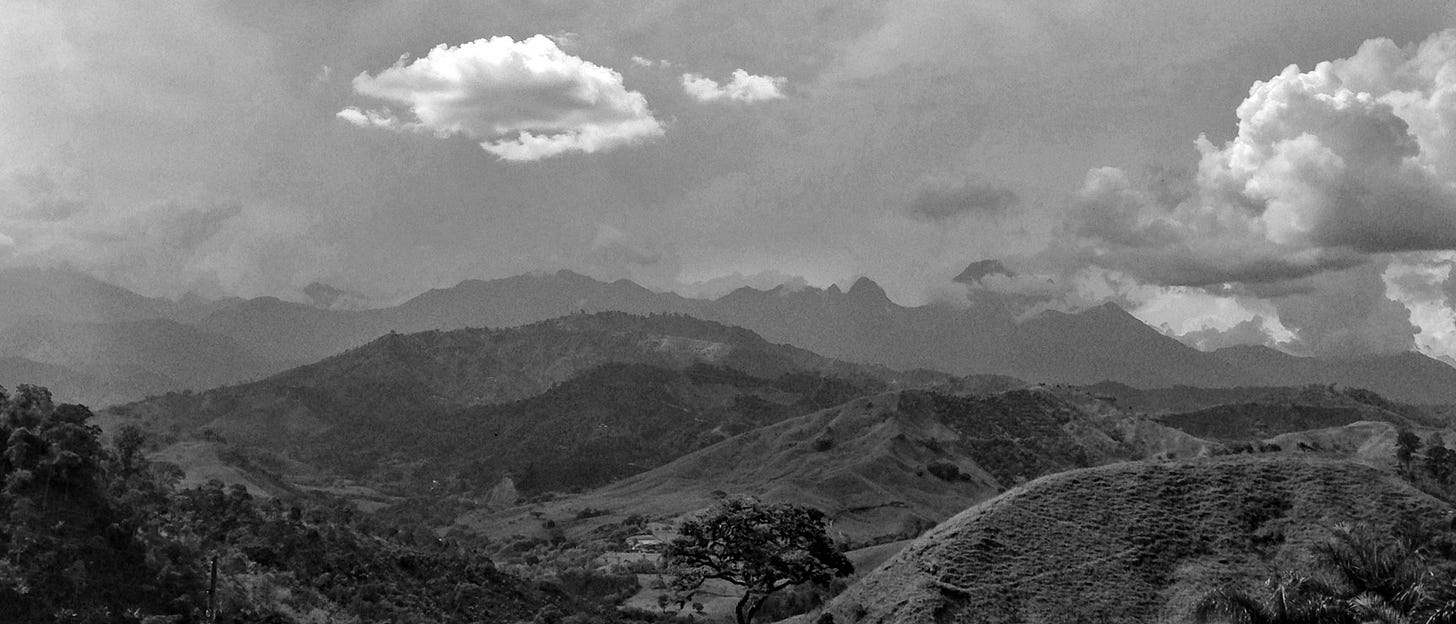Coffee News Roundup: Week Ending June 18th
This week, coffee production will be affected by the climate crisis (duh), New South Wales is banning disposable coffee cups, and Nespresso is doing some coffeewashing investing in Central America.
Hello and welcome to another Coffee News Roundup.
Let’s see what’s been going on this week.
Climate Crisis To Hit Europe’s Coffee And Chocolate Supplies - Via The Guardian
Not that this will come as a surprise to anyone (and certainly not to anyone who reads this Roundup regularly), but a new study has shown that the (ongoing, worsening) climate crisis will impact the production of coffee and other agricultural crops.
The analysis, which looked at drought impacts on agricultural imports to the European Union, found that overall 37% of imports could be vulnerable in the next 25 years, even if carbon emissions are curtailed (and judging by the announcements from the recent G7 summit, that’s not exactly likely).
The EU consumes 30% of the world’s coffee production, much of it from Brazil and Vietnam, both countries which the study says are vulnerable to drought. “Our analysis shows that coffee imports to the EU will be significantly affected by increased droughts in the future as a result of climate change,” the study reads in part. “44% of the coffee imports’ supply locations will be highly vulnerable to drought due to climate change.”
However, the fact that the study only considered drought means that the total impacts of global heating are likely underestimated. Mike Rivington from the James Hutton Institute in Scotland, not part of the research team, “said drought was just one of many climate risks to crops, such as flooding, increased disease, and loss of labour during heatwaves, as well as the loss of biodiversity such as pollinators.”
One Australian State Is Banning Takeaway Plastic Coffee Cups By 2022 - Via Sprudge
Single-use plastic bans are nothing new. Mexico City is enacting one; France (sort of) did similar in 2016; Canada is working on one too.
Now it’s the turn of New South Wales, the Australian state home to 8.166 million people (and the city of Sydney). By 2022, legislators plan to outlaw a whole host of disposable plastic stuff like polystyrene cups and food packaging, as well as lightweight plastic bags and, of course, disposable coffee cups.
According to the article, Australians throw away an estimated one billion plastic coffee cups every year, many of which end up contributing to the plastic waste clogging our oceans. New South Wales officials hope that the ban will keep 2.7 billion plastic items from ending up in landfills or the ocean over the next 20 years.
Of course, many plastic bans (such as the campaign against plastic straws from a few years ago) are distinctly ableist or at least consumer-blaming nonsense. That being said, the pandemic saw a whiplash approach to disposable single-use plastics (something the plastics industry was very thankful for) so it’s probably a good sign that the consensus is coming back around to plastic = bad.
More Headlines
After A COVID Hiatus, The Manchester Coffee Festival Returns In November
JDE Peet’s Acquiring Australia’s Campos Coffee As US Operation Folds
NKG And Coffee Coalition For Racial Equity Launch Green Coffee Specialist Program
The Week In Corporate Coffeewashing
Nespresso is joining the newly-created Partnership for Central America in response to Vice President Kamala Harris’ Call to Action for “new, significant commitments to help send a signal of hope to the people of the region and sustainably address the root causes of migration by promoting economic opportunity.”
The Partnership, of which Nespresso is a “founding participant”, will “offer business-led solutions in Central America to support economic opportunity”. Nespresso says it will expand its coffee sourcing in Guatemala and begin sourcing from El Salvador and Honduras, and support local economies “with at least $150 million spent across coffee purchases, price premiums and technical assistance by 2025.”
The idea behind the “Call to Action” is that, by investing in Central American countries, the people who live there will be incentivized to stay instead of migrating north to the United States in search of a better life (and to escape the ravages of the climate crisis).
Because foreign investment in Central America has historically always benefited the local people.
Meanwhile, the US Supreme Court found in favor of Nestlé USA in a child slavery case brought against the company by six individuals who claimed they were trafficked as child slaves to farms in the Ivory Coast that supply Nestlé with cocoa. Apparently, because Nestlé (and Cargill, another giant food company) hadn’t made “major operational decisions” in the US, the case wasn’t viable. Not that this is especially relevant, except to note that Nespresso was found to be buying coffee from farms that used child labor last year.
Is Coffee Good For You?
This week, according the New York Times, it is! In a Roundup-esque look at the latest coffee health news, the article states that “in numerous studies conducted throughout the world, consuming four or five eight-ounce cups of coffee (or about 400 milligrams of caffeine) a day has been associated with reduced death rates.”
It then goes on to list the various different things coffee can help with, from Parkinson’s to heart disease to liver cancer, as well as suicide. It’s worth a read if you’d like to keep up with the latest coffee health news—or you can just continue reading the Pourover for weekly updates. And there’s no paywall here.
What To Read
The entire Welcome To Coffee Country: Redefining Coffee In The Pacific Northwest by Eater is worth a look
Until next week, drink good coffee. Tip your barista (well).






